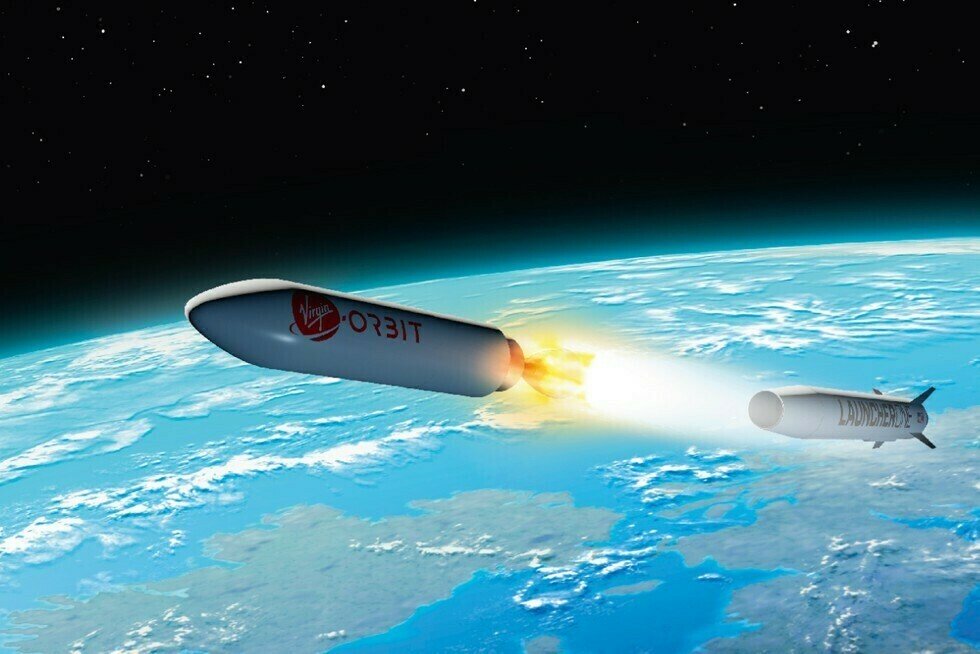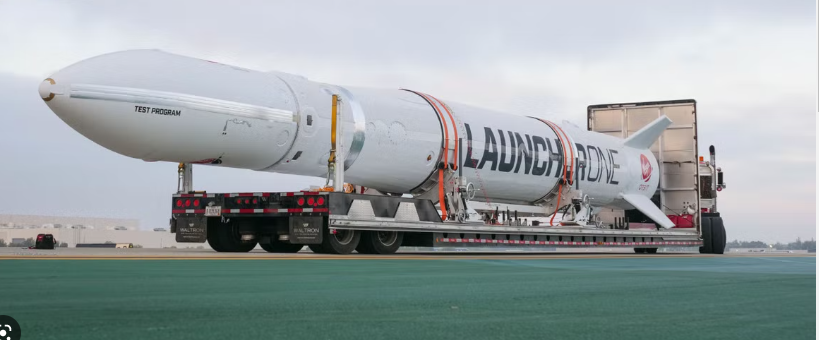Spaceport Cornwall in the United Kingdom is not well known, but last night, more than 2,000 ticket holders who paid for admission showed up to observe what was billed as the first orbital space launch from British soil. Nine distinct satellites from the military and the business sector made up the payload. The launch company is Richard Branson’s billionaire-owned U.S. business, Virgin Orbit. Unfortunately, the outcome was a failure, which was a severe blow for Virgin Orbit as well as the UK’s stated ambition to lead Western Europe in small satellite launch services by 2030.
In contrast to most commercial and private launch services, Virgin Orbit operates. It tucks a small satellite-carrying rocket under the wing of a Boeing 747, flies it to about 10,000 m (35,000 ft), and then releases it instead of utilizing a vertical rocket that takes off from a launch pad. The rocket’s first stage then ignites, lifting the vehicle above the 100 km (62 mi) line, which is considered the boundary of space. The first stage then separates, and the second stage ignites, launching the cargo into orbit.

Virgin Orbit was founded in 2020, and since then, four successful launches have been made from a spaceport in the Mojave Desert of California, all of which followed that same profile. In the UK, things did not go as well last night. According to an official statement from the U.K. space agency, the plane launched as planned, and the first stage performed flawlessly, but “some abnormality” prevented the second stage from igniting as it should have, resulting in the total destruction of the cargo of satellites.
Virgin Orbit CEO Dan Hart said in a statement that, “although we are very happy of the many things that we have successfully accomplished as part of this goal, we are cognizant that we failed to provide our clients with the launch experience they deserve.” The U.K. military and a few private businesses, such as In-Space Missions, who had two Earth monitoring satellites aboard the Virgin Orbit rocket, are among those clients. The company’s CEO, Doug Liddle, told the BBC that the loss of those was sad to everyone.
In the statement, Matt Archer, the space agency’s head of commercial spaceflight, added: “While this conclusion is disappointing, launching a spacecraft always includes significant risks.”
Risks for Virgin Orbit include the company’s ambition to overtake specialized players in the space launch industry, such as SpaceX, which boasted 61 successful launches of its workhorse Falcon 9 rocket in 2017 alone. The failure’s nature will be fully understood, and corrective measures will be taken, said Hart. The company’s space tourism subsidiary, Virgin Galactic, has pledged since 2004 to start regular suborbital flights for paying space visitors but has yet to fulfill that promise, so their efforts do not stop another stain on the Virgin brand.
The U.K., though, suffered the greater damage. From a spaceport in French Guiana, located in South America, the European Space Agency (ESA) routinely sends satellites into Earth orbit and beyond using its Ariane 5 rocket. The James Webb Space Telescope was successfully launched by an Ariane 5 in fact. However, no nation has yet launched an orbiting spacecraft from the continent of Europe.

Britain is capable of producing satellites and can launch payloads on suborbital lob shoots, but it depends on other nations, like as the United States and New Zealand, to put the satellites into orbit. The construction of Spaceport Cornwall, which was only a few weeks ago an empty cement slab at a commercial airport, was meant to be the beginning of the nation’s independence in space launch operations. Additionally, the UK intends to construct a vertical rocket launch station in Scotland.
The director of Spaceport Cornwall, Melissa Thorpe, told the BBC that it was “very gut-wrenching.” We invested a lot of time and effort into this, but as the saying goes, “It’s hard. We are aware of the difficulty.
George Freeman, the science minister for the United Kingdom, repeated that in a tweet, referencing President John F. Kennedy, who is credited with saying, “We do these things not because they are simple, but because they are hard,” in reference to the U.S. objective of landing on the moon.
Both Spaceport Cornwall and Virgin Orbit are prepared to attempt again; according to Hart, the latter intends to “return to orbit as soon as we have conducted a full inquiry” into what went wrong.
It’s unclear when that might happen, but the Virgin face-timing plant’s was awful. Competitor SpaceX successfully launched a flock of 40 broadband satellites on the same day that the business failed to transport nine satellites to orbit.





